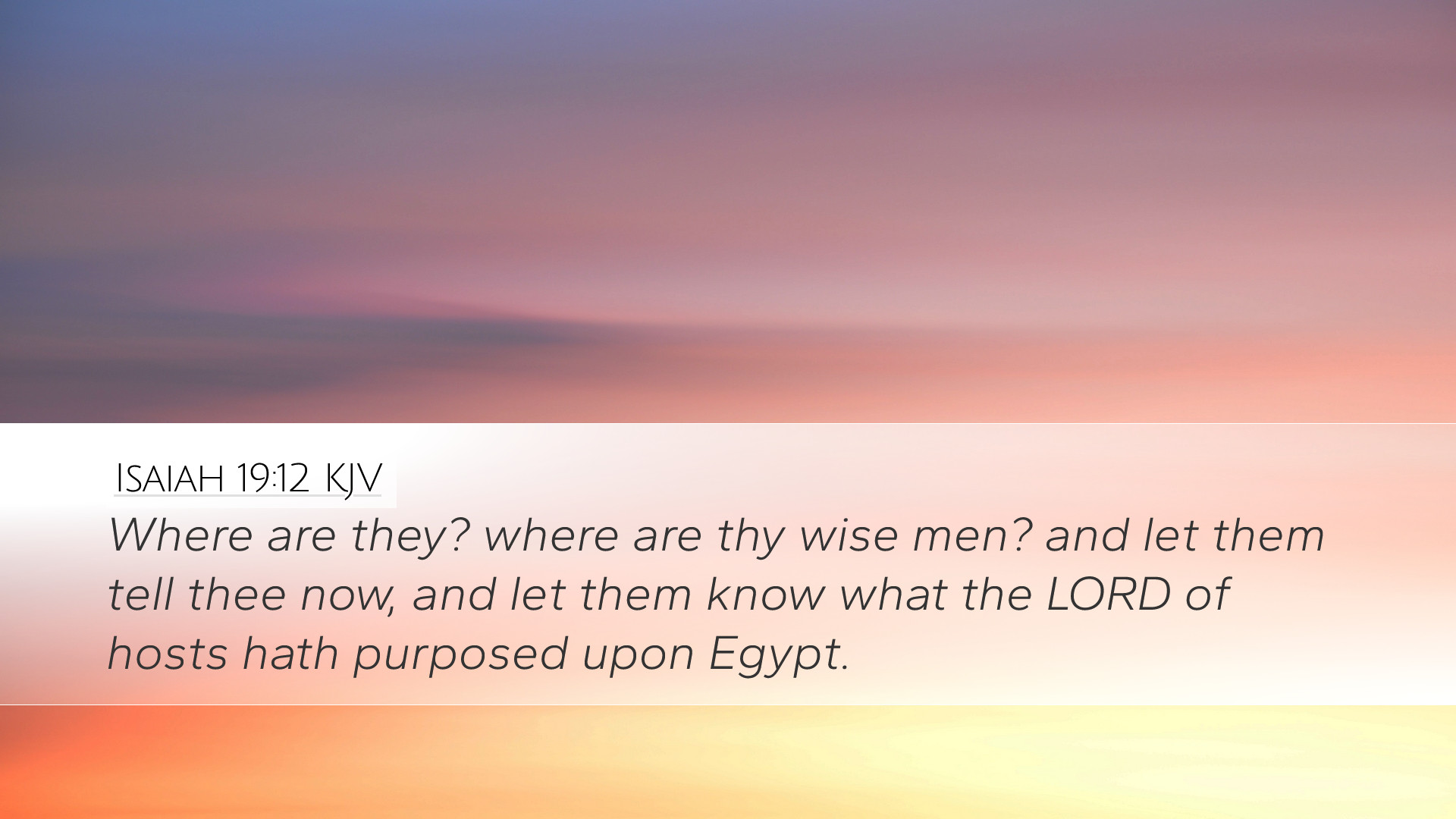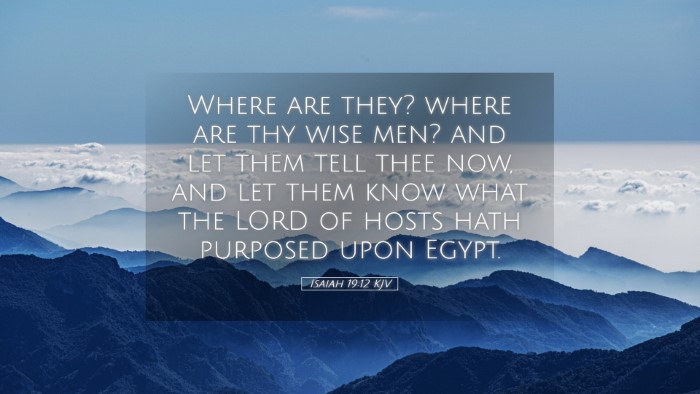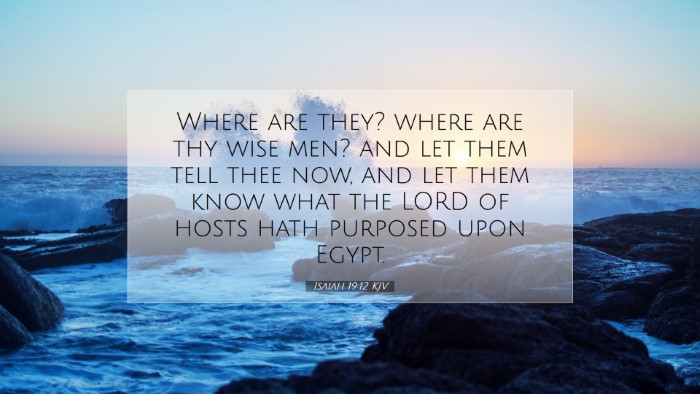Commentary on Isaiah 19:12
Isaiah 19:12 states: "Where are they? Let them tell thee now, and let them know what the Lord of hosts hath purposed upon Egypt." This verse serves as a poignant statement about the futility of the Egyptian wise men in understanding God’s purposes, highlighting both their ignorance and the sovereignty of the Lord.
General Context
The context of Isaiah 19 deals with a prophecy concerning Egypt, a nation that historically placed its trust in wisdom and human understanding. Isaiah contrasts this reliance with the divine wisdom and plans of Yahweh. The Egyptians, despite their advanced knowledge, are depicted as unable to grasp the impending judgments and purposes that God has set against them.
Insights from Matthew Henry
Matthew Henry emphasizes the failure of the Egyptian diviners to provide any insight into the purpose of God’s actions. He points out that the knowledge of God’s will and purposes is not available through human wisdom alone.
- Henry elaborates on the idea that the Egyptians, with their multitude of wise men, are invited to reveal God’s plans but find themselves impotent in the face of divine authority.
- He suggests that true wisdom comes from God, and human intellect, without divine revelation, is limited and ultimately futile.
Insights from Albert Barnes
Albert Barnes provides a detailed analysis of the invincible nature of God’s counsel against the backdrop of human ignorance. He interprets the phrase "Where are they?" as both a challenge and a scornful question posed to the wise men of the land.
- Barnes notes that the wisdom of Egypt, which was admired and sought after, yields nothing when faced with the knowledge of God's plans. This serves as a reminder that earthly wisdom cannot predict or understand divine intervention.
- He points out that the Egyptians would be left to their own devices and that their scholars would ultimately fail to comprehend the severity of God’s impending judgment.
Insights from Adam Clarke
Adam Clarke delves into the implication of the wise men’s failure to provide any knowledge or insight. He reflects on the significance of God's sovereignty over nations and the distinct lack of comprehension among those who rely solely on human reasoning.
- Clarke asserts that the text serves as a critical reflection on the limitations of human wisdom, especially in situations that require divine insight to navigate the paths of divine judgment.
- He analyzes the consequences of Egypt's trust in their wisdom and how this led to a disconnect from their Creator, which ultimately results in disaster.
Theological Implications
The overarching theme of Isaiah 19:12 draws attention to the failure of human efforts to comprehend God's sovereignty. Several theological implications arise from this verse:
- Divine Sovereignty: The Lord’s plans prevail regardless of human understanding or efforts. This highlights God's omnipotence and the futility of resisting His will.
- Human Limitation: The limitations of human wisdom are dramatically exposed, reminding believers that true knowledge comes from God alone.
- Call to Faith: The verse serves as a reminder for believers to place their trust in God's revelations instead of solely relying on human intellect.
Practical Applications
For pastors, students, theologians, and scholars, Isaiah 19:12 invites reflection on several practical applications:
- Emphasizing Divine Wisdom: In teaching and preaching, it is crucial to highlight that divine wisdom surpasses all human understanding, encouraging reliance on Scripture for guidance.
- Caution Against Over-Reliance on Human Intelligence: Ministry efforts should balance intellectual pursuits with spiritual discernment, ensuring that human wisdom doesn’t overshadow the need for divine revelation.
- Encouragement for Prayer and Seeking Guidance: This passage serves as an encouragement for believers to seek God’s guidance through prayer and scripture instead of solely through human resources.
Conclusion
Isaiah 19:12 stands as a profound reminder of the limitations of human wisdom in the face of God’s sovereign plans. The insights drawn from the commentaries of Matthew Henry, Albert Barnes, and Adam Clarke reinforce the necessity of understanding God's ways through a lens of faith and divine revelation. For the church today, this passage requires a humble acknowledgment of the Creator's authority and an invitation to seek true wisdom from Him.


